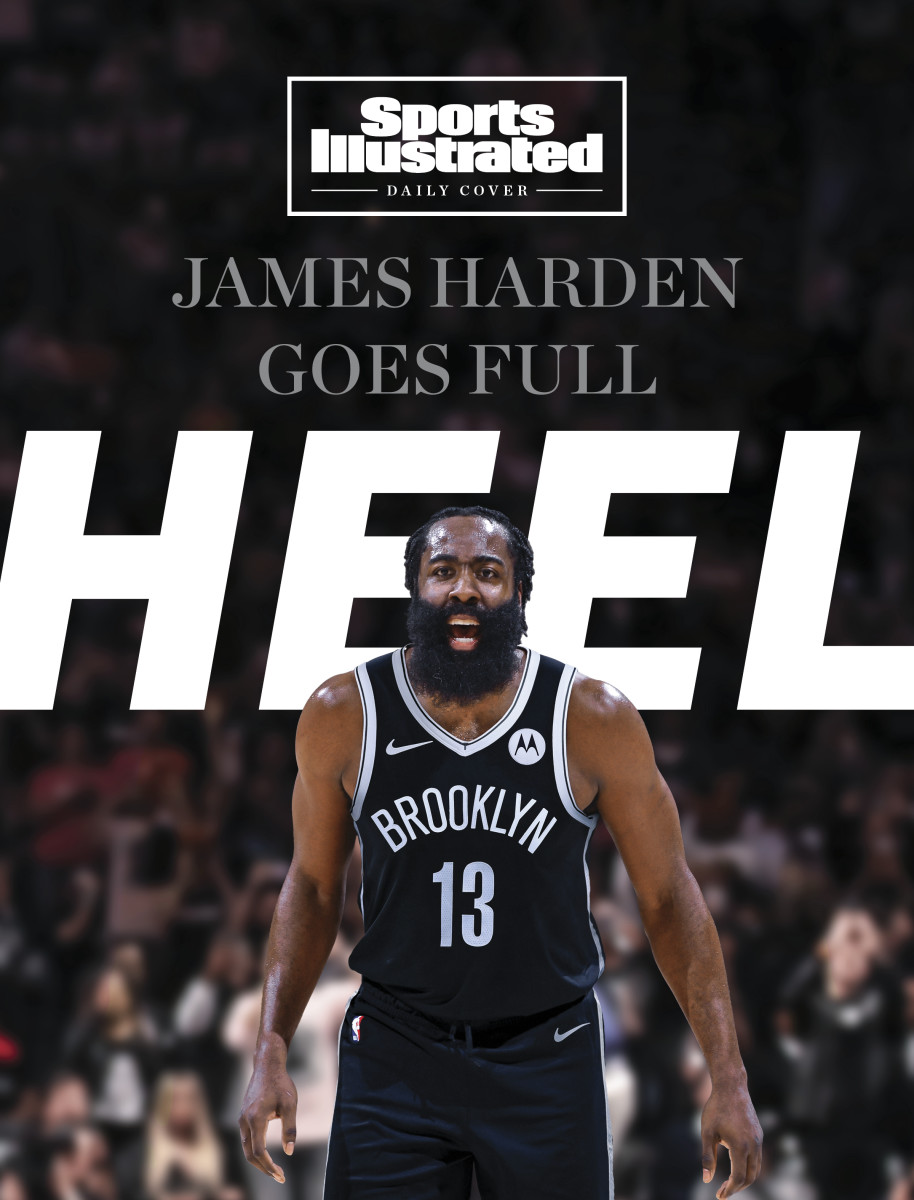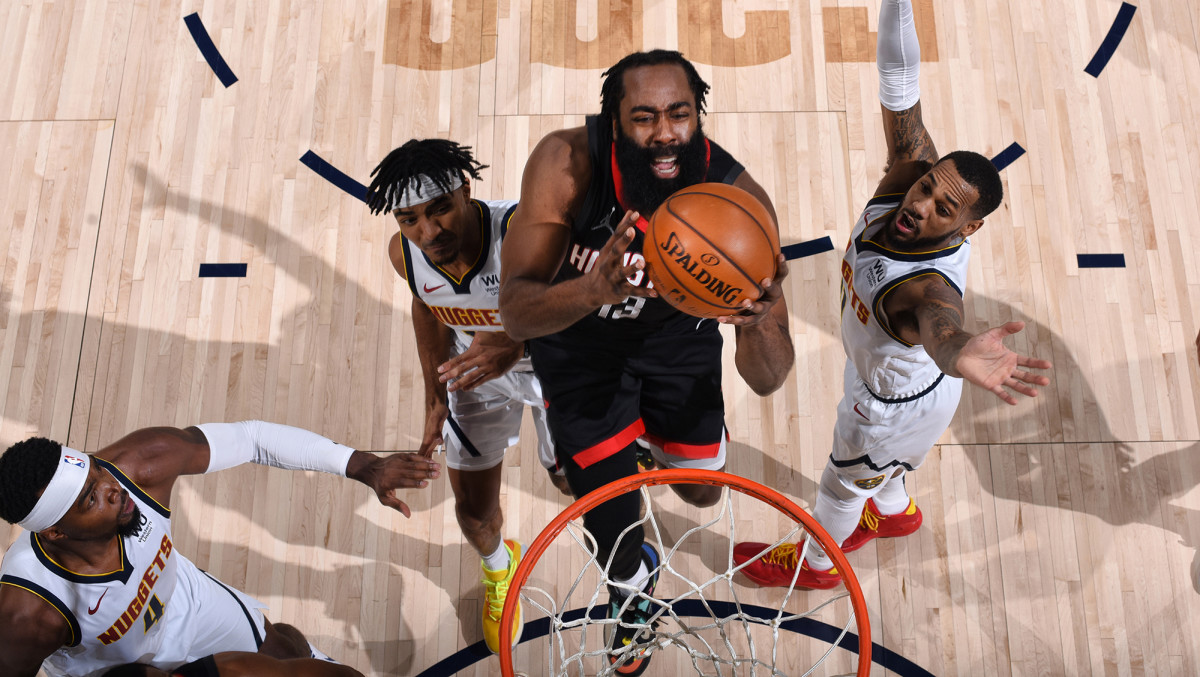James Harden Invites All the Scorn Coming His Way
James Harden is bound for Brooklyn, where his lumberjack beard will endear him to local hipsters and his DIY offense should endear him to basketball fans. (His stance on home composting is unknown.)
There, in the land of brownstones and boutique bodegas, he will join Kevin Durant and Kyrie Irving, two other peripatetic NBA beatniks with dazzling skills and glossy résumés. They will form the most fearsome trio in the Eastern Conference, and perhaps in the league.
If it all goes well—if they all sacrifice touches and points, if their skills and egos mesh, if their partnership is as organic as the kale at the Park Slope Food Coop—then perhaps Harden will finally seize the title that has long eluded him: NBA champion.
That presumably was the goal in November, when Harden first demanded a trade from the Rockets. He’d been an MVP and a scoring champion, and a virtual lock for the Hall of Fame, but with an unsightly gap in his trophy case.
Joining Durant and Irving could give Harden, 31, his best chance to add a ring. But in forcing his way to Brooklyn, via a four-team blockbuster trade Wednesday, Harden effectively clinched a different title: the greatest villain of his era.

It’s surely not a title he wanted or would welcome, but it’s now inescapable.
Harden’s exit from Houston was needlessly messy, with his blowing off the start of training camp, detouring to parties and clubs, violating NBA COVID-19 protocols, then showing up woefully out of shape.
His play the last few weeks has varied from dominant to listless to weirdly passive-aggressive. And in his final appearance as a Rocket late Tuesday night, Harden closed his press conference by trashing his teammates and bemoaning a “crazy” situation that he himself had created.
By all objective indicators—points per game, efficiency, on-off stats, net rating, All-NBA awards, winning percentage—Harden ranks as one of the greatest players of this era and as one of the greatest scorers of all time. These things are indisputable.
Yet Harden has long been as polarizing as he is dominant. Admired for his scoring prowess but reviled for his flailing and flopping and foul-drawing trickery. Respected for his immense skills and efficiency but resented for his endless complaining and politicking.
And then there’s the ball dominance. Oh, the ball dominance. The pounding and probing and shot-clock-eating ball dominance, every Rockets possession seemingly ending with a Harden shot or a Harden pass or Harden free throws.

For Rockets fans and Rockets officials, Harden’s means were justified by the ends—all those 50-win seasons and the two trips to the Western Conference finals (and dammit, they’d say, we might have even won a championship if not for the Warriors’ superteam and Chris Paul’s sore hamstring). To critics, it always just looked like self-indulgence and stagnation: a system designed for one man, teammates optional.
The Rockets paired Harden with three different costars over eight seasons—first Dwight Howard, then Paul, then Russell Westbrook, the latter two at Harden’s insistence—and all left Houston in frustration.
Now, even the fans who adored Harden most—the Rockets loyalists who defended all the flailing and ball-pounding, who talked themselves into the Paul-Westbrook swap, who amplified Harden’s grievances over MVP awards lost to Stephen Curry and Giannis Antetokounmpo—are left with only dismay and a patchwork team that might not make the playoffs.
Harden isn’t the first disgruntled NBA star to force a trade. Far from it. But he is one of the few to do so despite playing for a perennial contender and for a franchise that contorted everything from travel itineraries to roster construction to suit him. If the Rockets found themselves in a rut, with few promising prospects or picks or flexibility, it’s because of all the resources they spent building to Harden’s specifications.

Even in this era of superstar empowerment, when NBA stars switch teams as often as they change cell numbers, Harden’s case stands out. He had three years left on his contract. He played for a winning franchise, in a major market, in a city he loved.
If the Rockets looked feeble in the early weeks of this season, it’s mostly because Harden destabilized them with his trade demand and his pouting—to say nothing of Westbrook’s forcing his way out first, after one unsatisfying season of sacrificing his game for Harden’s.
So now it’s Harden on the move, inviting all the scorn that comes with his heel turn, though he will be mercifully shielded from the backlash until fans return to NBA arenas.
LeBron James used to hold the villain’s mantle, after spurning his hometown Cleveland Cavaliers in 2010 to form a superteam in Miami. But after winning a pair of championships and opening up with media and fans, James made a storybook return to Cleveland and delivered the Cavs a title, and along the way sparked a new age of player activism. His Q rating is just fine now.
Durant was cast as a villain in 2016, for ditching the Thunder to join their rival, the Warriors. But then Durant won a pair of titles and Finals MVP awards, and was widely praised for integrating his skills with the übertalented Warriors. Outside of Oklahoma, no one scorns him much.
Curry remains one of the most popular athletes on earth, even if the Warriors were momentarily cast as villains for the Durant signing. Westbrook’s game is polarizing, but few view him as a villainous figure.
Just 16 months ago, Harden insisted he had no interest in leaving the Rockets or in glamour markets or superteams, saying, “I'm going to find a way to win a championship, at least one. I'll figure it out in Houston.”
Now he’s heading to Brooklyn. To a glamour market. To join a superteam. To chase a championship. And to certify himself, however unintentionally, as the NBA’s reigning villain.
